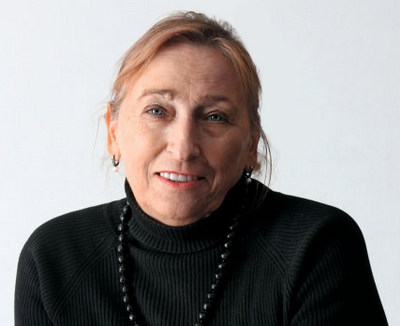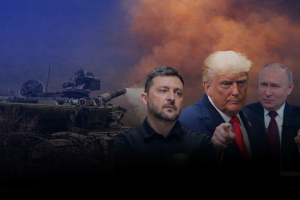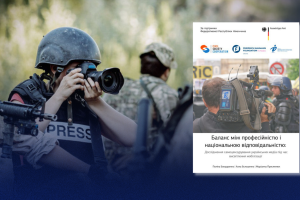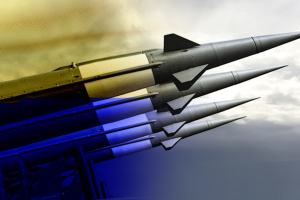 The release of the poll data was dedicated to the birthday of Iryna Bekeshkina, famous Ukrainian sociologist, director of Ilko Kucheriv Democratic Initiatives Foundation from 2010 to 2020.
The release of the poll data was dedicated to the birthday of Iryna Bekeshkina, famous Ukrainian sociologist, director of Ilko Kucheriv Democratic Initiatives Foundation from 2010 to 2020.
Nationwide survey was conducted by Ilko Kucheriv Democratic Initiatives Foundation in collaboration with the Center for Political Sociology during November 3–16, 2020. A total of 2002 respondents were surveyed on the sample representing the adult population of Ukraine (excluding the occupied territories). The sample is representative of such indicators as gender, age, type of settlement, and oblast of residence. The maximum random sampling error does not exceed 2.2%.
Regional distribution: West (Volyn, Zakarpattia, Ivano-Frankivsk, Lviv, Rivne, Ternopil, Chernivtsi Oblasts), Center (Vinnytsia, Zhytomyr, Kyiv, Kirovohrad, Sumy, Cherkasy, Chernihiv Oblasts, city of Kyiv), South (Zaporizhzhia, Mykolaiv, Odesa, Kherson Oblasts), East (Dnipropetrovsk, Donetsk, Luhansk, Kharkiv Oblasts).
- The absolute majority (77.5%) of Ukrainians negatively assess the current political situation in Ukraine. Particularly, critical sentiments prevail among the older generation (79%). The most optimistic respondents live in the western part of Ukraine, where 36% of respondents assessed the current political situation as calm and 5.5% as prosperous. One-third of respondents in the central (33%) and eastern (31%) regions consider the current situation critical or explosive.
- Amid considerable dissatisfaction with the political situation in the country, the majority of respondents do not expect mass demonstrations or protests in their localities. Only 28% of those surveyed expect protests or demonstrations to take place in their communities in the near future. The highest expectations of protests in November 2020 were observed among residents of Central Ukraine (38%).
.png)
- As of early November 2020, about 28% of those surveyed would be willing to join the protests if they were held. Men expressed their willingness to participate in protests more often than women (28% and 22%, respectively); young or middle-aged people (26% and 26.1%, respectively, compared to 22% among older people); residents of Western (30%) and Central Ukraine (29%). The least willing to participate in protests are residents of the South of Ukraine (12%).
.png)
.png)
- Among the reasons for possible protests in their communities, respondents more often mentioned business closures (38%), deterioration of healthcare services (35.7%), increase in utility rates (35.6%), and deterioration of living conditions (35%). Women were more likely than men to expect public protests due to an tariff increase (difference of 4.5%) and deterioration of healthcare services (slightly more than 4% difference), while men were more inclined to believe that protests would be held because of arbitrariness of the authorities (difference of 3.5%) and crimes of law enforcement officers and judges (difference of 3.5%).
.png)
.png)
- Older respondents (above 54 years of age) more often than other age categories reported that if there were protests, they would be connected primarily with a tariff increase (39%), in their opinion, this is the most likely cause of protests today of all. In comparison, among young people, 8.5% fewer expect protests over higher tariffs. Significantly more often than the older generation, young people believe that protests may result from the business closures (a difference of 11%) and the introduction of quarantine measures (7%).
- In general, despite the moderate willingness of Ukrainians to participate in the mass demonstrations if their rights are violated or their living conditions deteriorate, people believe that participation in protests (25%) and attracting the attention of the media (26%) are the most popular ways of putting pressure on the authorities. Violent action as a response to inaction of authorities has almost no support among respondents (2.5%). Men are more likely to engage in extremist actions than women (4% compared to 1%).
- Writing petitions as a way of putting pressure on the authorities was mentioned more often by respondents in western oblasts (22%). Respondents in the central regions of Ukraine (20%) mentioned less such a method as attracting the attention of media. In the eastern oblasts, there are the least number of people who give preference to protests (17%).
.png)
.png)
Survey results
1. How would you assess the political situation in Ukraine in general?
| % |
Prosperous | 1, 8 |
Calm | 13, 0 |
Tense | 51, 2 |
Critical, explosive | 26, 3 |
Hard to say | 7, 7 |
| West | Center | South | East |
Prosperous | 5, 5 | 0, 5 | 0, 0 | 1,4 |
Calm | 36, 4 | 3, 4 | 11, 3 | 5,5 |
Tense | 40, 6 | 54, 0 | 54, 3 | 55,5 |
Critical, explosive | 11, 0 | 33, 5 | 25, 8 | 31,0 |
Hard to say | 6, 6 | 8, 6 | 8, 6 | 6,7 |
2. Do you think mass protests are possible in your city (village) in the near future in case of deterioration of life or in protection of one's rights?
| % |
Yes, I'm sure there will be mass demonstrations/protests | 7, 3 |
Probably yes | 20, 8 |
Unlikely | 40, 8 |
No, there won't be any | 19, 6 |
Hard to say | 11, 6 |
| West | Center | South | East |
Yes, I'm sure there will be mass demonstrations/protests | 4, 6 | 11, 3 | 3, 1 | 6,2 |
Probably yes | 16, 5 | 26, 4 | 17, 1 | 18,3 |
Unlikely | 45, 4 | 34, 5 | 47, 1 | 42,1 |
No, there won't be any | 25, 3 | 12, 4 | 22, 0 | 24,0 |
Hard to say | 8, 2 | 15, 4 | 10, 7 | 9,4 |
3. If such protests and demonstrations take place, will you take part in them?
| % |
Definitely | 8, 4 |
Probably yes | 16, 6 |
Probably no | 23, 6 |
Definitely not | 39, 2 |
Hard to say | 12, 4 |
| Young people < 30 | Middle-aged people 30-54 | Older people > 54 |
Definitely | 8, 2 | 8, 5 | 8, 3 |
Probably yes | 17, 5 | 17, 7 | 14, 1 |
Probably no | 25, 1 | 25, 8 | 18, 9 |
Definitely not | 34, 5 | 34, 9 | 49, 5 |
Hard to say | 14, 8 | 13, 2 | 9, 1 |
| West | Center | South | East |
Definitely | 7, 0 | 11, 3 | 5, 2 | 7,1 |
Probably yes | 22, 8 | 17, 5 | 6, 4 | 15,8 |
Probably no | 20, 5 | 25, 1 | 23, 5 | 24,3 |
Definitely not | 38, 2 | 29, 4 | 61, 2 | 41,0 |
Hard to say | 11, 6 | 16, 8 | 3, 7 | 11,9 |
Those who assume the possibility of protests are more inclined to participate
| Yes, I'm sure there will be mass demonstrations/protests (7% of all) | Probably yes (21% of all) | Unlikely (41% of all) | No, there won't be any (20% of all) |
Definitely | 44% | 10% | 5% | 4% |
Probably yes | 23% | 33% | 16% | 5% |
Probably no | 12% | 24% | 33% | 12% |
Definitely not | 14% | 20% | 39% | 71% |
In total | 100% | 100% | 100% | 100% |
4. What do you think could lead to mass protests in your city (village)? (you can choose all the answers you think are appropriate)
| % |
Business closures | 38, 1 |
Increase in utility rates | 35, 6 |
Deterioration of healthcare services (hospital closures, shortage of necessary medicines, introduction of paid medical services, etc.) | 35, 7 |
Deterioration of living conditions | 35, 3 |
Fall of the hryvnia, a price boom | 30, 6 |
Arbitrariness of the authorities | 28, 1 |
Introduction of quarantine measures | 20, 2 |
Crimes of law enforcement officers, judges | 17, 3 |
Corruption scandals | 11, 4 |
Destruction of green areas, parks | 8, 8 |
Disagreement with the decisions of the authorities regarding the terms of peace in Donbas | 5, 1 |
Ukrainianization policy (closing Russian schools, renaming streets, etc.) | 5, 0 |
Decommunization policy (renaming of streets, settlements, oblasts) | 3, 4 |
None of the above | 11, 1 |
Other | 2, 1 |
Refusal to answer | 5, 4 |
5. If public authorities do not perform their functions, which do you think are the most effective ways to get what you want?
| % |
Joining a political party | 2, 5 |
Appealing to the court | 9, 5 |
Writing a petition | 9, 6 |
Attracting media attention | 26, 4 |
Participation in protests and demonstrations | 24, 7 |
Road blockage | 7, 2 |
Peaceful occupation of administrative buildings | 2, 7 |
Violent actions | 2, 5 |
Other | 4, 9 |
Hard to say | 35, 1 |
| Men | Women |
Joining a political party | 2,6 | 2,3 |
Appealing to the court | 9,6 | 9,4 |
Writing a petition | 10,2 | 9,2 |
Attracting media attention | 24,5 | 28,0 |
Participation in protests and demonstrations | 28,1 | 21,8 |
Road blockage | 8,5 | 6,1 |
Peaceful occupation of administrative buildings | 3,6 | 1,9 |
Violent actions | 4,3 | 1,0 |
Other | 4,0 | 5,8 |
Hard to say | 33,2 | 36,8 |
| Young people < 30 | Middle-aged people 30-54 | Older people > 54 |
Joining a political party | 3,5 | 2,5 | 1,5 |
Appealing to the court | 10,7 | 8,8 | 9,5 |
Writing a petition | 14,8 | 9,1 | 6,2 |
Attracting media attention | 25,2 | 29,3 | 23,2 |
Participation in protests and demonstrations | 28,9 | 25,8 | 19,7 |
Road blockage | 6,4 | 6,9 | 8,3 |
Peaceful occupation of administrative buildings | 3,9 | 2,7 | 1,7 |
Violent actions | 3,1 | 2,4 | 2,2 |
Other | 3,7 | 5,4 | 5,2 |
Hard to say | 32,4 | 33,4 | 40,1 |
| West | Center | South | East |
Joining a political party | 3,4 | 1,6 | 0,6 | 4,4 |
Appealing to the court | 10,5 | 6,1 | 17,6 | 8,1 |
Writing a petition | 21,7 | 4,9 | 10,5 | 3,9 |
Attracting media attention | 25,5 | 19,6 | 32,4 | 34,9 |
Participation in protests and demonstrations | 39,7 | 20,0 | 23,8 | 17,3 |
Road blockage | 12,4 | 6,4 | 8,3 | 2,1 |
Peaceful occupation of administrative buildings | 5,9 | 1,1 | 2,8 | 1,8 |
Violent actions | 2,7 | 3,3 | 1,9 | 1,4 |
Other | 3,4 | 6,4 | 2,5 | 6,0 |
Hard to say | 26,8 | 39,9 | 38,3 | 33,7 |
6. Can you say that you are interested in politics?
| % |
Yes | 8, 4 |
Probably yes | 16, 6 |
Probably no | 23, 6 |
Not at all | 39, 2 |
Hard to say | 12, 4 |
| Men | Women |
Yes, definitely | 20, 3 | 11, 9 |
Probably yes | 37, 4 | 31, 5 |
Probably no | 24, 4 | 33, 5 |
Not at all | 13, 1 | 17, 2 |
Hard to say | 4, 8 | 5, 8 |
| Young people < 30 | Middle-aged people 30-54 | Older people > 54 |
Yes, definitely | 9, 2 | 14, 7 | 22, 9 |
Probably yes | 30, 6 | 35, 2 | 35, 5 |
Probably no | 35, 3 | 29, 9 | 23, 6 |
Not at all | 19, 9 | 14, 5 | 12, 8 |
Hard to say | 4, 9 | 5, 7 | 5, 1 |
| West | Center | South | East |
Yes, definitely | 20, 7 | 16, 0 | 8, 3 | 16,0 |
Probably yes | 36, 5 | 37, 0 | 26, 6 | 32,5 |
Probably no | 28, 1 | 27, 9 | 33, 6 | 30,0 |
Not at all | 11, 4 | 13, 2 | 26, 3 | 14,9 |
Hard to say | 3, 4 | 5, 9 | 5, 2 | 6,6 |








